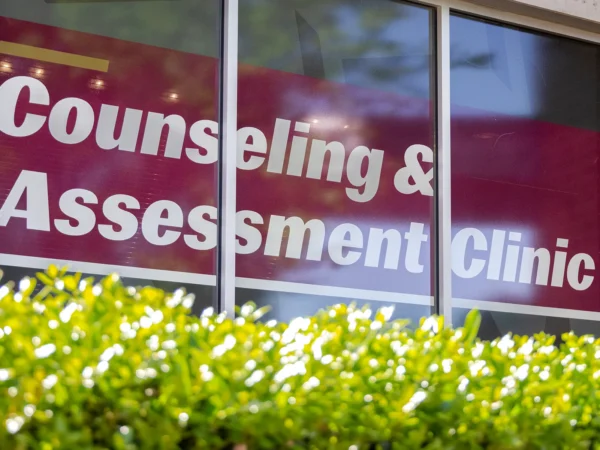Helping Kids Become Successful Students
All parents want their children to be successful. From the moment they step onto that yellow school bus for their first day of kindergarten, parents want their children to do well in school, make straight As, participate in sports and be well liked by their classmates. But it doesn’t end there. Parents also want their children to grow into fine adults, graduate from college, get a well-paying job and start their own families.
Unfortunately, parents can’t control everything about their children, especially how well they perform in school. In fact, education faculty in the College of Education & Human Development have identified multiple factors that contribute to and shape the success of children during their school-aged years.
And guess what? Parenting is just one factor. The presence or absence of supportive teachers and principals is also critical in determining a child’s achievement in school.
1. EFFECT OF THE HOME ENVIRONMENT ON RETENTION
According to Victor Willson and Jan Hughes, professors of educational psychology, early school failure has long-term negative influences on a person’s behavior, academic performance and eventual occupation. They suggest that parents who are more involved with their child’s schooling can help reduce the risk of their child being retained.
“One simple approach parents can take is to communicate regularly with teachers and take responsibility to monitor their children’s school work and activities,” Hughes says.
As part of a study that was published in the Elementary School Journal, the pair studied a sample of 784 children to see how psychological and social variables contribute to grade retention. Every child had below-average literacy performance in kindergarten or at the beginning of first grade and were assessed on academic competence, school context, home environment and other variables. Of the 784 students, 165 were not promoted to the next grade level.
“We wanted to see how the 165 students retained in first grade differed from their promoted classmates,” Willson explains. “Academic competence — not demographics, psychosocial or behavioral problems — was found to be the primary determiner of retention.”
Hughes adds that home and environmental conditions, such as economic disadvantage, are also predictors of grade retention.
“Economic stressors affect parents’ time with their children and hinder opportunities for learning,” she says.
“Finding the time to even read to children when parents work long hours or different shifts can be difficult.”
Even after considering the child’s achievement levels, certain parenting practices and beliefs can directly affect the likelihood that a child will be retained.
“Children whose parents are directly involved in their children’s schooling and who advocate for them are more likely to be promoted,” Hughes adds. “Children whose parents are less involved with their children’s schooling but who have a generally positive view of the school are more likely to be retained.”
2. CHILDREN NEED SUPPORTIVE TEACHERS
“The strongest predictor of a child’s success is their achievement the previous year,” Hughes says. “Children who have a supportive relationship with their teacher, one where they feel a sense of acceptance and security, are more likely to work hard in school, follow rules and persist when they get stuck on problems. The children are also more likely to perceive themselves as more academically capable.”
These findings, published online in Child Development, are the result of a National Institutes of Health study by Hughes and associate professor of educational psychology Oi-man Kwok. The two have followed the same sample of academically at-risk children from three Texas school districts for more than 10 years, beginning when the children entered the first grade in 2000 and 2001. They sought to find whether the experience of a warm and supportive teacher predicts the next year’s achievement. And the answer they concluded was that teachers do play a vital role in establishing positive learning environments.
“A positive social and emotional relationship with the teacher has its impact on achievement indirectly by its effect on children’s motivation and behavioral engagement in the classroom,” Hughes explains. “But even more exciting is how patterns of supportive or conflicting relationships with teachers throughout the elementary years impact expected achievement in middle school.”
The study also found that a nurturing teacher-student relationship has the largest effect on children who have a poor ability to regulate their own behavior. This includes students who temperamentally are impulsive, have a hard time stopping and thinking, and tend to rush through things.
Children who have a poor ability to regulate behavior in the first grade generally don’t learn as much from the first to second grade as do children with good regulation. That is true, notes Hughes, unless the child has a supportive relationship with the teacher.
“If a supportive teacher is present in the classroom, even a child with poor ability to regulate will learn just as much as a child with good regulation skills,” Hughes adds. “A warm and supportive teacher-student relationship completely compensates for poor regulation.”
3. IMPACT OF SUCCESSFUL SCHOOL LEADERS
Effective school leaders set the tone for high academic expectations. School districts need principals who lead by example, work to positively impact classroom instruction and achievement, and develop relationships with students, teachers and community members.
A study focused on developing the leadership skills of principals has identified positive changes in principal behaviors that research links to student achievement. As part of the study, half of the 78 elementary school principals from northern Michigan were asked to participate in Mid-Continent Research for Education and Learning’s Balanced Leadership Program, an intensive, two-year professional development program that addresses three key challenges of school leadership: improving school culture and climate, managing change, and focusing efforts on improving student learning.
“The Balanced Leadership Program is designed to teach these principals about the research and prepare them to use itto make changes that improve learning in their schools,” says Roger Goddard, professor of K-12 administration and director of the Education Leadership Research Center. “The program provides them with the tools for change but lets them decide how to actually use these tools in their own schools.”
Districts need principals who lead by example, work to positively impact classroom instruction and achievement, and develop relationships with students, teachers and
community members.
What is important to note is that after receiving just 50 percent of the training, principals participating in the Balanced Leadership Program were already reporting positive effects. According to Goddard, principals receiving the training reported higher levels of knowledge and involvement in their school’s curriculum, instruction and assessment programs, higher levels of efficacy and a greater likelihood to create a positive school climate. Furthermore, turnover rates in these schools were five times lower than in those schools not experiencing the program (Two principal departures vs. 10).
Although preliminary, researchers at both Texas A&M and the University of Michigan concluded the Balanced Leadership Program has the potential to create long-term changes in principals’ job performance, school climate, teacher practice and student learning.
“Changes in educator behavior are often hard to produce,” Goddard explains. “Our evaluation shows the Balanced Leadership Program positively impacts principals’ learning of leadership practices that are linked to student achievement. We know that as lifelong learners, these principals can benefit from further development, and in the end, we all want to help schools and the students they serve.”
For media inquiries, contact our Media Relations Coordinator, Ashley Green.
Fundraising
To learn more about how you can assist in fundraising, contact Amy Hurley, Director of Development ahurley@txamfoundation.com or 979-847-9455














